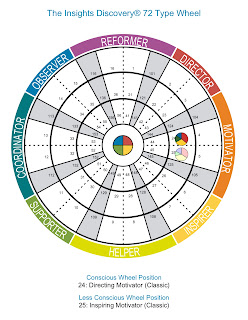Expect more culture clashes on privacy
Yesterday, The Guardian reported that Germany has demanded that Facebook cease the automatic tagging of users in photos uploaded to the site or face a fine of €300,000. (That's hardly a sum that will register on Facebook's balance sheet, but that's a separate point.)
The German concern relates to the automatic calculation of biometric facial profiles and Facebook's technology means that they can still calculate and store those profiles, even for users who choose to opt out of public display of this feature that's currently automatic.
Why the concern? Simply because this week researchers at Carnegie Mellon university have reported their ability to combine image scanning, cloud computing and public profiles from social network sites to identify individuals in the offline world. And to link profiles of people at online dating sites with their real name information. They simply used off-the-shelf facial recognition technology (similar to that purchased by Google recently) to search publicly available Facebook profiles; and have even produced an app to add personal data to an individual's photo captured on a smart phone screen.
The team's leader is quoted by the BBC as saying, "When we share tagged photos of ourselves online, it becomes possible for others to link our face to our names in situations where we would normally expect anonymity,"
Hamburg's data protection official, Johannes Caspar, notes "If the data were to get into the wrong hands, then someone with a picture taken on a mobile phone could use biometrics to compare the pictures and make an identification," he said. Such a system could be used by undemocratic governments to spy on the opposition or by security services around the world. "The right to anonymity is in danger," he said.
The German concern relates to the automatic calculation of biometric facial profiles and Facebook's technology means that they can still calculate and store those profiles, even for users who choose to opt out of public display of this feature that's currently automatic.
Why the concern? Simply because this week researchers at Carnegie Mellon university have reported their ability to combine image scanning, cloud computing and public profiles from social network sites to identify individuals in the offline world. And to link profiles of people at online dating sites with their real name information. They simply used off-the-shelf facial recognition technology (similar to that purchased by Google recently) to search publicly available Facebook profiles; and have even produced an app to add personal data to an individual's photo captured on a smart phone screen.
The team's leader is quoted by the BBC as saying, "When we share tagged photos of ourselves online, it becomes possible for others to link our face to our names in situations where we would normally expect anonymity,"
Hamburg's data protection official, Johannes Caspar, notes "If the data were to get into the wrong hands, then someone with a picture taken on a mobile phone could use biometrics to compare the pictures and make an identification," he said. Such a system could be used by undemocratic governments to spy on the opposition or by security services around the world. "The right to anonymity is in danger," he said.
- Expect companies to become ever more resourceful in providing systems that attract us into sharing stuff that can then be combined and re-purposed in surprising ways that give them an economic advantage.
- Expect globalisation to force a trend towards the lowest common denominator which is to erode the assumption of privacy that's found in European countries such as Germany but not, for example, so much in California. For example, as we noted recently, Microsoft confirms that much of European data is essentially subject to the provisions of the US Patriot Act.



Comments